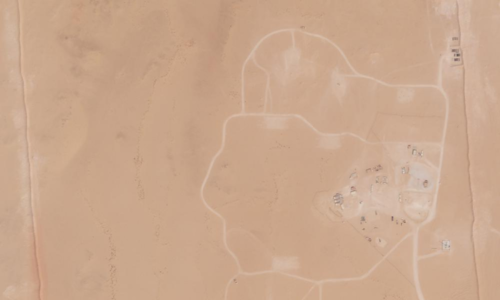
DUBAI: Sixty-seven Yemeni rebels and pro-government troops have been killed in fighting for the key city of Marib, military sources said on Monday, as the insurgents inch closer to the loyalists’ last northern bastion.
A volley of air strikes from the Saudi-led coalition targeted the Iran-backed Houthi rebels, who have stepped up their assault to seize the capital of the oil-rich Marib province in recent weeks.
Hundreds of fighters have died in clashes this month for Marib, a temporary home for hundreds of thousands who fled there from other frontline cities. Over two million more live in refugee camps in the province.
“Fifty-eight Houthi insurgents and nine loyalists were killed in fighting and air strikes in the provinces of Marib and Shabwa in the past 24 hours,” military sources said.
The figures were confirmed by medical sources, while the rebels rarely announce their casualties.
According to the military sources the Saudi-led coalition that backs Yemen’s government launched more than 20 air strikes in the past 24 hours.
The strikes “targeted Houthi vehicles, meeting points and reinforcements in Shabwa and Marib,” one source added.
News of the latest escalation was followed by a US announcement that President Joe Biden’s national security adviser, Jake Sullivan, would visit Saudi Arabia in the highest level talks since his administration took office.
The White House did not give details on the dates or the nature of his message, but said Sullivan would be accompanied by officials including Tim Lenderking, the US special envoy on Yemen.
Biden, shortly after taking office in January, said the United States would slash support for the Saudi-led offensive in Yemen. But his administration has been frustrated that the Houthis have shown little interest in a ceasefire and are pursuing their Marib offensive.
The Houthis initially stepped up their efforts to seize Marib in February, hoping to seize control of the region’s oil resources and strengthen their position in peace talks.
Since then, in a major blow to the government, the insurgents have neared the city on three fronts — from the north, west and south.
Marib, about 120 kilometres east of the rebel-held capital Sanaa, sits at a crossroads between the southern and northern regions and is key to controlling Yemen’s north.
The rebels already control swathes of the country, and the seizure of Marib would cement their hold on the north.
The city had between 20,000 and 30,000 inhabitants before the war, but its population has ballooned as Yemenis fled there for its relative stability. With about 139 refugee camps in the province, according to the government, hosting approximately 2.2 million people, the displaced civilians are again caught in the line of fire.
Yemen’s conflict flared in 2014 when the Houthis seized the capital Sanaa, prompting the Saudi-led intervention to prop up the internationally recognised government the following year.
This month marks seven years since the rebels took control of Sanaa, with some analysts saying the balance has tilted in favour of the insurgents against the coalition.
About 80 percent of Yemen’s 30 million people are dependent on aid, in what the United Nations calls the world’s worst humanitarian crisis.
While the UN and the US are pushing for an end to the war, the Houthis have demanded the reopening of Sanaa airport, closed under a Saudi blockade since 2016, before any ceasefire or negotiations.
The last talks took place in Sweden in 2018, when the opposing sides agreed to a mass prisoner swap and to spare the city of Hodeida, where the port serves as the country’s lifeline.
But despite agreeing to a ceasefire in Hodeida, violent clashes have since broken out between the rebels and pro-government troops around the strategic city.
Published in Dawn, September 28th, 2021













































